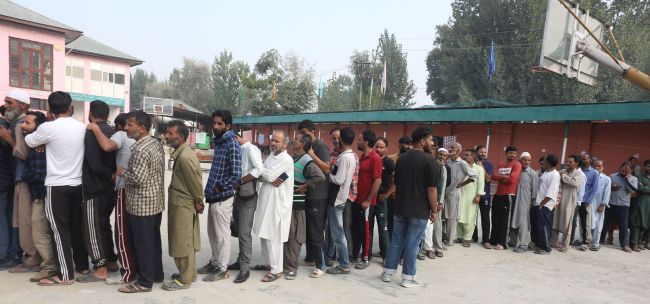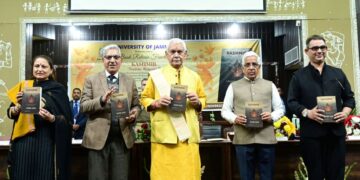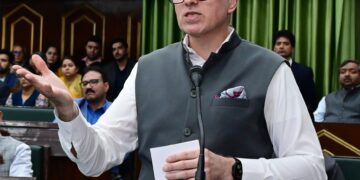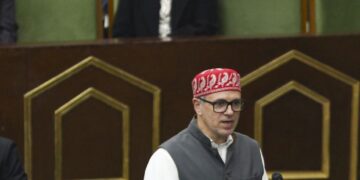Srinagar: Despite recording a comparatively low turnout than the five other districts in the second phase of assembly elections on Wednesday, voters in Srinagar’s downtown cast ballots with restoration of ‘statehood’ and overall development of the city in mind.
People in the downtown areas are of the firm believe that maiden assembly elections following the abrogation of Article 370 would put an end to “bureaucratic hegemony” and open the doors for the city to develop.
Compared to the Lok-Sabha elections that were held in May this year, the old city recorded comparatively low turnout in assembly elections, voting for which was held today.
“We believe that the new administration of our elected members will usher in a constructive change. To be very honest, we voted for statehood and development of the city,” Zahoor Ahmad, a voter from Eidgah Assembly segment, told ‘Kashmir Images’.
While standing in a long queue at a polling station in Rathpora Eidgah, Ahmad, a retired government teacher, hoped that the regional political parties might have taken note of their past ‘transgressions’ and would no longer subject the people of Jammu and Kashmir to political hardship.
Zuhaib, a first-time voter, said that he was voting to regain the identity that Jammu and Kashmir had lost when it was reduced to a union territory. “This election felt more like a battle to me than a typical political process, because our leaders in Kashmir have pledged to bring back the identity J&K lost in 2019. I support their pledge over that of any party or individual,” Zuhaib, a class 12 student told ‘Kashmir Images’.
As the price-rise has broken the back of an average citizen in Kashmir, Mehmooda, a septuagenarian from the old city’s Kawdara area, said the new administration must pull the valley out of this political quagmire.
“The current administration continues to raise electricity bills while maintaining that installing smart power meters will reduce the tariff and provide customers with 24/7 access to electricity. The ration per person was cut from fifteen kg to four kg. How could a poor individual survive in such circumstances even as the government is now preparing to install smart water meters as well?” she questioned.
The perceptions and expectations of people, particularly the women voters in civil lines areas, differed from their counterparts in downtown. Here they talked about drug abuse and sale of narcotics.
Safdara, a 45-year-old woman from the Mehjoor Nagar section of the civil lines, stated that her younger son, a 12th grade student, had a serious drug addiction and that she was counting on the next government to completely eradicate the threat.
“Mothers find themselves without hope as their children gradually fall prey to a drug addiction. I believe the biggest threat to mothers in Kashmir is drug abuse, besides other problems like rising costs, unemployment, and a lack of progress,” Safdara said.








